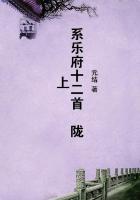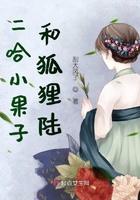embracing system of radical reform was about to be undertaken--not secretly by the Administration, as had been the custom in the preceding reign when any little changes had to be made, but publicly, by the Government and the people in common. "The heart trembles with joy," said one of the leading organs of the Press, "in expectation of the great social reforms that are about to be effected--reforms that are thoroughly in accordance with the spirit, the wishes, and the expectations of the public." "The old harmony and community of feeling," said another, "which has always existed between the government and the people, save during short exceptional periods, has been fully re-established. The absence of all sentiment of caste, and the feeling of common origin and brotherhood which binds all classes of the Russian people into a homogeneous whole, will enable Russia to accomplish peacefully and without effort not only those great reforms which cost Europe centuries of struggle and bloodshed, but also many which the nations of the West are still unable to accomplish, in consequence of feudal traditions and caste prejudices." The past was depicted in the blackest colours, and the nation was called upon to begin a new and glorious epoch of its history. "We have to struggle," it was said, "in the name of the highest truth against egotism and the puny interests of the moment; and we ought to prepare our children from their infancy to take part in that struggle which awaits every honest man. We have to thank the war for opening our eyes to the dark sides of our political and social organisation, and it is now our duty to profit by the lesson. But it must not be supposed that the Government can, single-handed, remedy the defects. The destinies of Russia are, as it were, a stranded vessel which the captain and crew cannot move, and which nothing, indeed, but the rising tide of the national life can raise and float."
Hearts beat quicker at the sound of these calls to action. Many heard this new teaching, if we may believe a contemporary authority, "with tears in their eyes"; then, "raising boldly their heads, they made a solemn vow that they would act honourably, perseveringly, fearlessly." Some of those who had formerly yielded to the force of circumstances now confessed their misdemeanours with bitterness of heart. "Tears of repentance," said a popular poet, "give relief, and call us to new exploits." Russia was compared to a strong giant who awakes from sleep, stretches his brawny limbs, collects his thoughts, and prepares to atone for his long inactivity by feats of untold prowess. All believed, or at least assumed, that the recognition of defects would necessarily entail their removal. When an actor in one of the St. Petersburg theatres shouted from the stage, "Let us proclaim throughout all Russia that the time has come for tearing up evil by the roots!"
the audience gave way to the most frantic enthusiasm. "Altogether a joyful time," says one who took part in the excitement, "as when, after the long winter, the genial breath of spring glides over the cold, petrified earth, and nature awakens from her deathlike sleep.
Speech, long restrained by police and censorial regulations, now flows smoothly, majestically, like a mighty river that has just been freed from ice."
Under these influences a multitude of newspapers and periodicals were founded, and the current literature entirely changed its character. The purely literary and historical questions which had hitherto engaged the attention of the reading public were thrown aside and forgotten, unless they could be made to illustrate some principle of political or social science. Criticisms on style and diction, explanations of aesthetic principles, metaphysical discussions--all this seemed miserable trifling to men who wished to devote themselves to gigantic practical interests. "Science,"
it was said, "has now descended from the heights of philosophic abstraction into the arena of real life." The periodicals were accordingly filled with articles on railways, banks, free-trade, education, agriculture, communal institutions, local self-
government, joint-stock companies, and with crushing philippics against personal and national vanity, inordinate luxury, administrative tyranny, and the habitual peculation of the officials. This last-named subject received special attention.
During the preceding reign any attempt to criticise publicly the character or acts of an official was regarded as a very heinous offence; now there was a deluge of sketches, tales, comedies, and monologues, describing the corruption of the Administration, and explaining the ingenious devices by which the tchinovniks increased their scanty salaries. The public would read nothing that had not a direct or indirect bearing on the questions of the day, and whatever had such a bearing was read with interest. It did not seem at all strange that a drama should be written in defence of free-trade, or a poem in advocacy of some peculiar mode of taxation; that an author should expound his political ideas in a tale, and his antagonist reply by a comedy. A few men of the old school protested feebly against this "prostitution of art," but they received little attention, and the doctrine that art should be cultivated for its own sake was scouted as an invention of aristocratic indolence. Here is an ipsa pinxit of the literature of the time: "Literature has come to look at Russia with her own eyes, and sees that the idyllic romantic personages which the poets formerly loved to describe have no objective existence. Having taken off her French glove, she offers her hand to the rude, hard-














